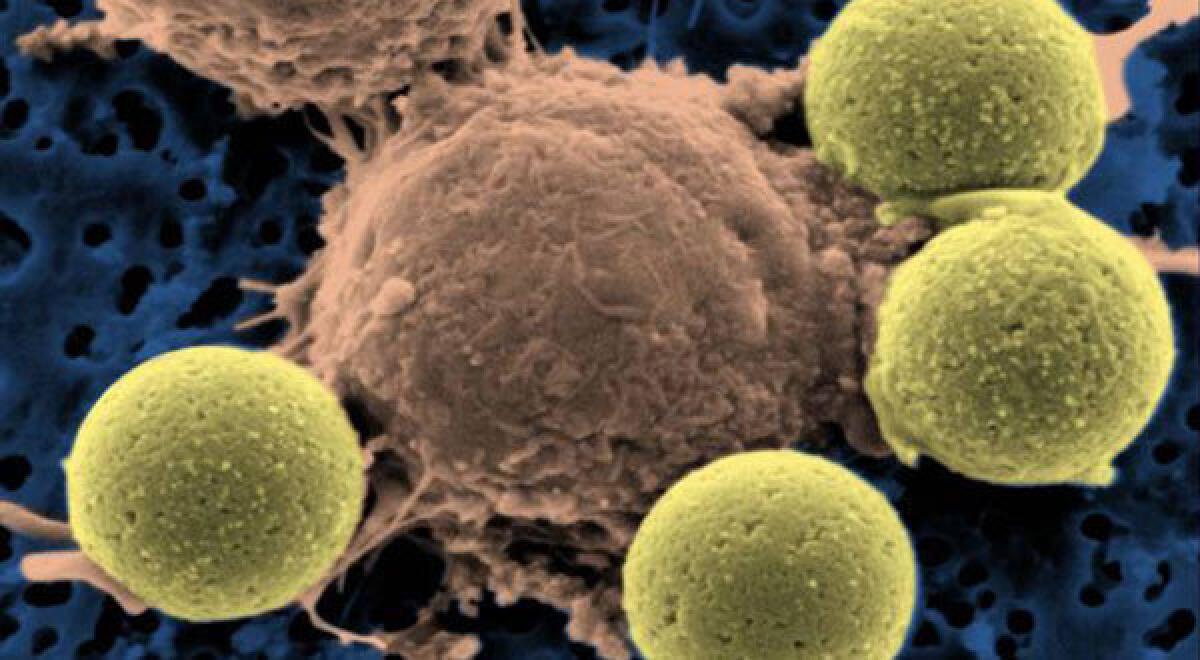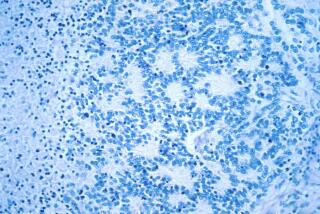Engineered T-cell therapy offers hope to adult leukemia patients

- Share via
A therapy that supercharges the body’s immune cells and sends them back in to fight a deadly form of leukemia has shown promise in adult patients who were out of options, according to a new report published Wednesday.
Adults who have relapsed after treatment for B-cell acute lymphoblastic leukemia “have a dismal prognosis” a group from Memorial Sloan-Kettering Cancer Center wrote in the journal Science Translational Medicine. But after undergoing the experimental therapy, four of five patients with relapsed B-cell acute lymphoblastic leukemia went into remission. One of those patients subsequently died of a blood clot, and the fifth patient, who was too sick to undergo a bone marrow transplant, also died.
The remaining three patients, who would likely have died within a few months of their disease recurrence, have been in remission for periods ranging from five to 24 months.
The treatment protocol is similar to one that’s been used successfully in a child with leukemia and in several patients with a chronic form of leukemia--all of whom had a better prognosis that patients in the current study.
Under the experimental protocol, a sample of T-cells--white blood cells that are powerful foot soldiers in the body’s immune system--is removed from the patient’s blood and the cells are engineered to home in on B-cells with particular accuracy and ferocity. Since both are immune cells, the all-out war that took place in the days after the supercharged T-cells were infused caused the patients to experience a storm of immune reactions, including potentially deadly fevers. Physicians at Sloan-Kettering treated those with steroids.
“These results demonstrate the marked anti-tumor efficacy” of T-cells specially engineered to attack the out-of-control B-cells that are the hallmark of this rare form of leukemia. The Phase II trial--a designation given to tests of therapies still considered highly experimental--also demonstrates “the reliability of this therapy to induce profound molecular remissions.”
Such remissions, in turn, can clear the way for patients who were near death to undergo a final, “curative” bone marrow transplant.
Researchers hope that the experimental therapy may be useful in other blood cancers, and in treatment of some solid tumors, including prostate cancer.







